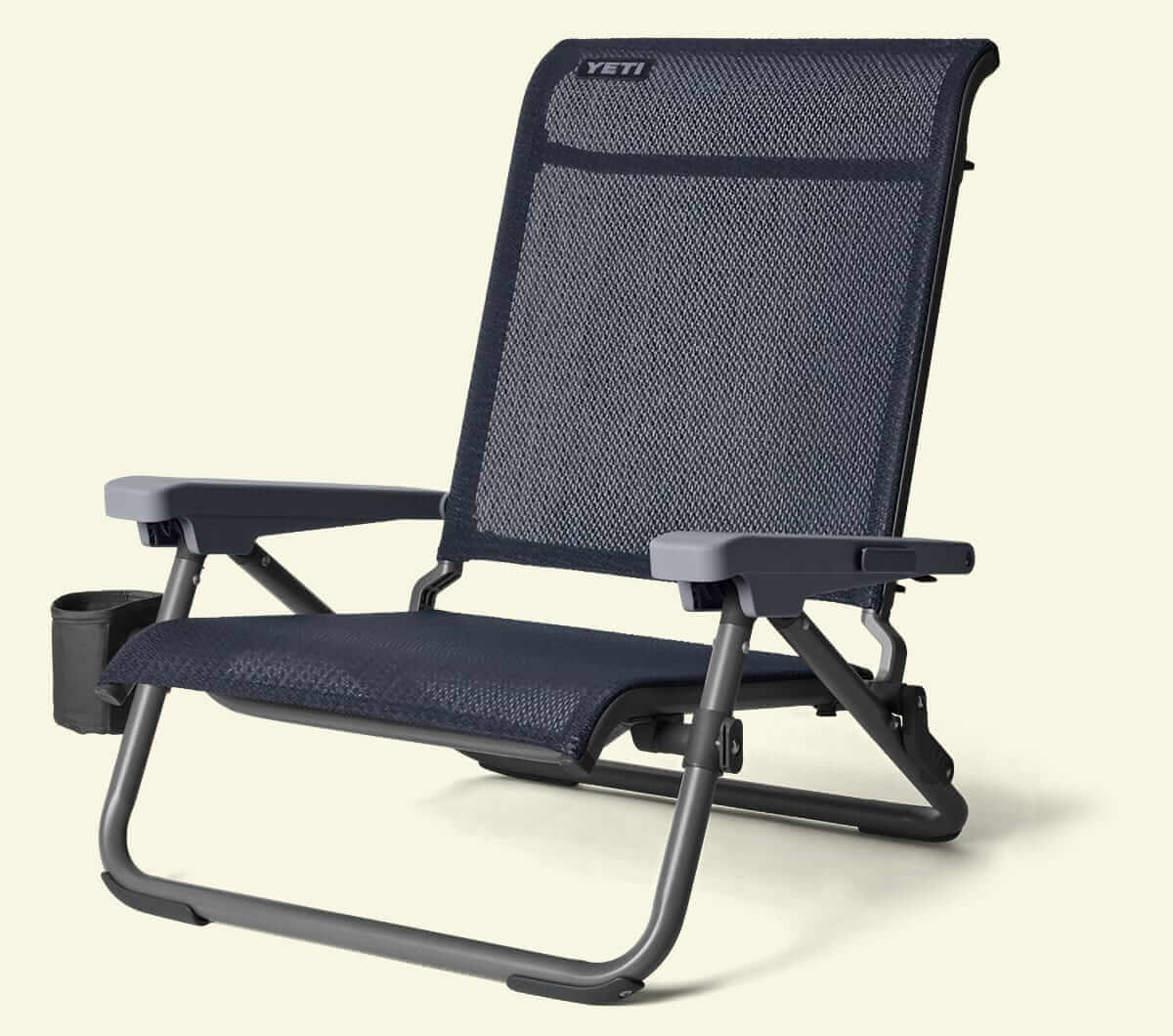Monday, May 12th Edition |

|
By Cory Ohlendorf, Valet. EditorIt's Monday? Already? |
Today’s Big Story
China and U.S. Agree to Tariff Break
The agreement lowers tensions in the trade war but does little to change the deteriorating ties between the nations

Well, it’s a start. The United States and China agreed Sunday to lower tariffs on goods from each other’s countries for 90 days while they negotiate, offering a temporary reprieve in a trade war that threatens to cause a global recession and deepen a widening rift between the world’s two largest economies.
Under the agreement, the United States would reduce the tariff on Chinese imports to 30% from its current 145%, while China would lower its import duty on American goods to 10% from 125%. “We concluded that we have a shared interest,” said Treasury Secretary Scott Bessent at a news conference in Geneva where U.S. and Chinese officials met over the weekend. “The consensus from both delegations is that neither side wanted a decoupling,” he said.
The talks came after months of economic and rhetorical hostilities that have roiled global markets and threatened to halt trade between the world’s largest exporter and its largest consumer. Global investors immediately started cheering. Stock markets across Asia rose on Monday as investors waited for details of the talks, including hopes of a partial rollback of the tariffs. In Europe, Germany’s DAX index and France’s CAC were 1.2% and 1% up respectively early in the trading session. London’s FTSE index rose 0.3%, too. But analysts cautioned that the announcement fell far short of a trade deal and was merely the beginning of more rounds of negotiations.
Analysts told the Washington Post that the announcement and promise of negotiations certainly lowers the temperature in their war but does little to change the overall direction of deteriorating ties between Beijing and Washington, which are closer than ever to a full economic break. “It’s a more civilized way to divorce. The bifurcation will continue,” said Alicia García Herrero, chief economist for Asia Pacific at the investment bank Natixis. “It’s a smoothing of the impact of the bifurcation, just to happen more slowly and less costly. This meeting is basically an attempt, hopefully successful, of avoiding a global recession.”
Of course, the agreement breaks an impasse that had brought trade between China and the United States to a halt. Many American businesses had suspended orders, holding out hope that the two countries could strike a deal to bring down the tariff rates while raising the possibility of price increases. Chinese factories also experienced a sharp decline in orders for export to the United States, heaping additional pressure on a sluggish economy. This should get things moving again, but as we learned during the pandemic, the revving back up to full speed (and getting shipments from the other side of the world) takes some time.
FYI: |
The U.S. dollar strengthened early Monday following the breakthrough in trade talks. The ICE dollar index, which measures the greenback’s strength against a basket of major currencies, rose 1.3% to $102. |
House Republicans Unveil Medicaid Cuts
Democrats warn that the move will leave millions without care
House Republicans are releasing their plan to cut Medicaid spending, with the program’s defenders in the GOP appearing to win the intraparty clash over how aggressively to change the system that provides health insurance to more than 70 million low-income and disabled people.
According to the Associated Press, the centerpiece of President Donald Trump’s “big, beautiful bill” features at least $880 billion in cuts largely to Medicaid to help cover the cost of $4.5 trillion in tax breaks. Tallying hundreds of pages, the legislation is touching off the biggest political fight over health care since Republicans tried to repeal and replace the Affordable Care Act, or Obamacare, during Trump’s first term in 2017—which ended in failure.
Politico reports that the bill does not include the most controversial ideas, including per-capita caps on federal Medicaid payments to states, but it incorporates new mandates that will likely force states to revamp how they finance their programs or cut benefits. And the politics ahead are uncertain. More than a dozen House Republicans have told Speaker of the House Johnson and GOP leaders they will not support cuts to the health care safety net programs that residents back home depend on. Trump himself has shied away from a repeat of his first term, vowing there will be no cuts to Medicaid.
Qatar Wants to Give Trump a New Air Force One
Gulf state’s offer to replace the aging presidential plane raises some serious ethics concerns
In what is sure to be the most valuable gift ever extended to the United States from a foreign government, the Trump administration is preparing to accept a super luxury Boeing 747-8 jumbo jet from the royal family of Qatar. The gifted plane would be used as the new Air Force One until Trump leaves office—at which time ownership of the plane will be transferred to the Trump presidential library foundation, to be used as he wishes.
The president has long expressed frustration at the delays in delivering two new 747-8 aircraft to serve as an updated Air Force One. A U.S. Air Force official told Congress last week that Boeing had proposed finishing the planes by 2027. Trump confirmed the fact that he anticipates receiving the Qatari plane, after a day of controversy in which even some Republicans privately questioned the wisdom of the plan. And suggested that Democrats were “losers” for questioning the ethics of the move.
But the swift backlash signals that congressional Democrats may latch onto the issue when they return to session next week. The Democratic National Committee blasted out a press release Sunday afternoon branding the development as “Trump’s latest grift.” Critics say taking the pricey plane would be unconstitutional—violating the emoluments clause, which forbids U.S. officials from accepting gifts or other things of value from foreign officials without congressional approval. Sources told ABC News that Attorney General Pam Bondi and Trump’s top White House lawyer David Warrington concluded it would be “legally permissible” for the donation of the aircraft to be conditioned on transferring its ownership to Trump’s presidential library before the end of his term. Of course, the optics aren’t great, but Trump’s ridden out worse.
Dig Deeper: |
From a bicycle and pencil sharpener, to 300lb of raw meat. The Guardian looks at U.S. presidential gifts and the rules governing them. |
‘Everybody’s Replaceable’
How does the boss talk to you? It’s tough out there …
Corporate America’s long-running war for talent sounds more like a war on the talent these days. The Wall Street Journal reports that with a giant question mark hanging over the economy, executives are pulling no punches in saying employees need to work harder, complain less and be glad they still have jobs.
“Work-life balance is your problem,” Emma Grede, co-founder of the shapewear company Skims and CEO of clothing label Good American, said this month. After recently cutting more than a 1,000 jobs, Starbucks CEO Brian Niccol said remaining corporate staff needed to step it up and “own whether or not this place grows.” JPMorgan CEO Jamie Dimon, in a profanity-laced internal meeting, told employees lamenting a return-to-work mandate that he didn’t care. “I’ve had it with this kind of stuff,” he said. “I’ve been working seven days a week since COVID, and I come in, and—where is everybody else?”
The Journal points out that the shift in tone marks a shift in power now that companies are shrinking their white-collar staff. With jobs harder to find, many workers are seeing perks disappear and their grievances ignored. Behind CEOs’ more brusque tone lies a disconnect between employees and executives, said Michael McCutcheon, an adjunct professor in applied psychology at New York University and an executive coach. Some employees are operating like it is “still 2021,” when they could name their demands because of labor shortages and a surge in worker resignations, he said. Now bosses face a global trade war and sinking consumer confidence and feel they must ask more of employees to survive.
Dig Deeper: |
Explore how labor power has grown, waned and changed over two centuries in the U.S. |
|
|
|||||||||





